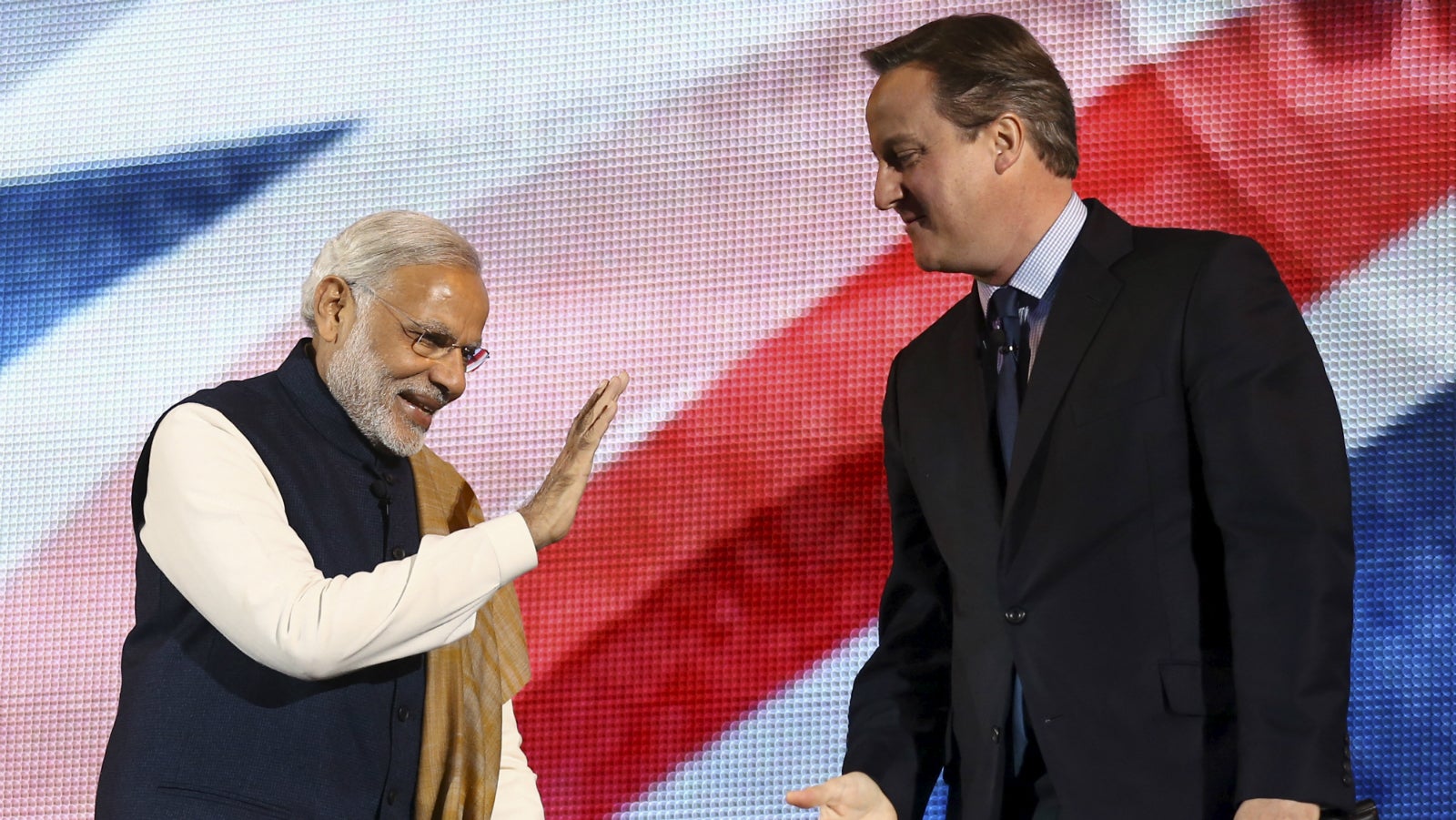At Wembley, Narendra Modi delivers a quantum of solace
For a moment, it seemed that the British prime minister David Cameron had stolen Narendra Modi’s thunder.


For a moment, it seemed that the British prime minister David Cameron had stolen Narendra Modi’s thunder.
At London’s Wembley Stadium, before a mostly Indian audience of some 60,000, Cameron opened with a namaste, said kem cho (twice) to a thundering applause, and predicted that it wouldn’t be terribly long before a British-Indian took his job.
But this was a stage lovingly erected for the Indian prime minister—still licking his wounds from the Bihar debacle and bedeviled by questions on India’s growing intolerance.
And, Modi wasted little time in making it his own. He began in English, thanked Cameron more than once, and switched to Hindi.
There were the usual references to India’s intractable poverty and why it must go, the country’s demographic dividend and why it must deliver, yet Modi had even more pressing matters to address.
Pilloried at home and abroad for this silence on rising sectarian discord in India, the prime minister used the stage at his biggest international reception to make a point.
Since I became the prime minister, people from around the world certainly ask me one question: ‘Mr Modi, tell us how do 125 crore people in your country live together and with so much love?’ People are surprised. A country that has 100 languages, 1,500 dialects, thousands of varieties of food—our country is full of diversity. And this diversity is our speciality. This diversity is our pride. This diversity is our strength also.
On a platform that he typically employs to sell his dreams of developing India’s economic backbone, Modi laid unusual emphasis on India’s religious diversity. He spoke of Sikhs and their contribution, and of Sufism—a mystical Islamic belief and practice that helped spread the religion across parts of Africa and Asia, including India.
“In India, the verses of Kabir and Rahim inspire us all. Today whatever is happening in the world in the name of terrorism, I sometimes think, if the Sufi tradition was strong, and if there was more influence of the Sufi culture in Islam, and if Sufi culture was better understood, no one would have thought of holding a gun,” Modi said.
These are welcome words at a time when many Indians are increasingly discomfited by the words and deeds of some of the India’s right-wing, which is intertwined with Modi’s Bharatiya Janata Party. Nonetheless, the prime minister could have been more direct and forthright—and called out to his own political and ideological brethren for more restraint.
Instead, a day after facing what was perhaps his toughest press conference since becoming prime minister—courtesy of the feisty British media’s difficult questions—Modi went on the defensive by taking a jab at the fourth estate.
“My countrymen, we should never make the mistake of believing that what we see on TV, is all that happens in India. Don’t make the mistake of thinking that whatever the newspaper headlines show, only that is India—this is not the case. India is very big. Outside the TV screen, the India of 125 crore Indians is a fine and great country.”
Much of what followed was the cliched speech that Modi is making a habit of delivering at these extravagant diaspora gatherings—from Sydney to San Jose. Usually, it consists of an irregular roster of achievements, a shorter list of promises and a reference to Modi’s rise from a tea seller to the prime minister.
At Wembley, Modi also exposed his jocular prowess—and nodded to British cinema—as he introduced a Rupee bond to help fund the Indian railways.
“When we think of Bond, the first thing that comes to mind is James Bond. The next thing is Brooke Bond tea. James Bond provides entertainment and Brooke Bond refreshes us,” Modi explained.
“But now we need to go beyond entertainment or refreshment. We need development,” he told a crowd that couldn’t stop chanting his name. “That’s why after James Bond and Brooke Bond, we go to Rupee Bond.”